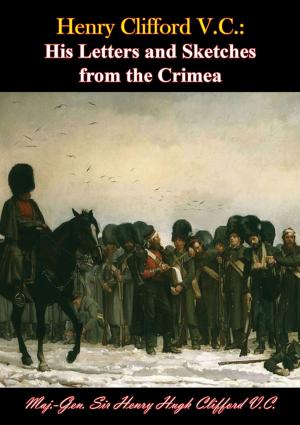The Rise and Fall of the Crimean System 1855-71
The Story of a Peace Settlement
Nonfiction, History, Military, Other, Asian, Russia, British| Author: | Prof. W. E. Mosse | ISBN: | 9781787202719 |
| Publisher: | Normanby Press | Publication: | November 11, 2016 |
| Imprint: | Normanby Press | Language: | English |
| Author: | Prof. W. E. Mosse |
| ISBN: | 9781787202719 |
| Publisher: | Normanby Press |
| Publication: | November 11, 2016 |
| Imprint: | Normanby Press |
| Language: | English |
The Crimean war and the settlement by which it was concluded formed the climax of then-British Prime Minister Palmerston’s later diplomacy. In Palmerston’s view, much like the war itself, the peace settlement that followed was intended to “to curb the aggressive ambition of Russia. We went to war not so much to keep the Sultan and his Mussulmans in Turkey as to keep the Russians out of Turkey.”
Apart from material guarantees like the neutralization of the Black Sea and the removal of Russia from all contact with the navigable portion of the Danube and its tributaries, Palmerston sought to achieve his object above all by a policy of diplomatic ‘containment,’ to construct ‘a long line of circumvallation to confine the future extension of Russia,’ and thus ultimately prevent any potential future conflict.
This book, originally published in 1963, thoroughly examines Crimean system, from its inception and rise, through to the initial signing of the Triple Treaty on 15 April 1856, its subsequent testing time, and the eventual demise of the Crimean system.
The detailed study seeks to provide the reader with some answers to the general questions that arise with the implementation of international engagements, such as:
“What is the value of a unilaterally imposed peace settlement? Do treaties of guarantee serve any useful purpose? What, in general, is the relationship between original intent at the signing of a treaty and the policy or will of the given moment? Will any government, in fulfilment of treaty obligations, pursue a line of policy to which it is not otherwise inclined? Will a government in pursuance of obligations contracted years before, act in opposition to the ‘national interest’ of the moment? In short, is there such a thing as the much proclaimed ‘faith of treaties’?”
The Crimean war and the settlement by which it was concluded formed the climax of then-British Prime Minister Palmerston’s later diplomacy. In Palmerston’s view, much like the war itself, the peace settlement that followed was intended to “to curb the aggressive ambition of Russia. We went to war not so much to keep the Sultan and his Mussulmans in Turkey as to keep the Russians out of Turkey.”
Apart from material guarantees like the neutralization of the Black Sea and the removal of Russia from all contact with the navigable portion of the Danube and its tributaries, Palmerston sought to achieve his object above all by a policy of diplomatic ‘containment,’ to construct ‘a long line of circumvallation to confine the future extension of Russia,’ and thus ultimately prevent any potential future conflict.
This book, originally published in 1963, thoroughly examines Crimean system, from its inception and rise, through to the initial signing of the Triple Treaty on 15 April 1856, its subsequent testing time, and the eventual demise of the Crimean system.
The detailed study seeks to provide the reader with some answers to the general questions that arise with the implementation of international engagements, such as:
“What is the value of a unilaterally imposed peace settlement? Do treaties of guarantee serve any useful purpose? What, in general, is the relationship between original intent at the signing of a treaty and the policy or will of the given moment? Will any government, in fulfilment of treaty obligations, pursue a line of policy to which it is not otherwise inclined? Will a government in pursuance of obligations contracted years before, act in opposition to the ‘national interest’ of the moment? In short, is there such a thing as the much proclaimed ‘faith of treaties’?”






![Cover of the book The Stars Bear Witness [Illustrated Edition] by Prof. W. E. Mosse](https://www.kuoky.com/images/2015/november/300x300/9781786254757-THHk_300x.jpg)
![Cover of the book Armor In Vietnam [Illustrated Edition] by Prof. W. E. Mosse](https://www.kuoky.com/images/2015/november/300x300/9781786250162-DpCu_300x.jpg)
![Cover of the book Vietnam Studies - Cedar Falls-Junction City: A Turning Point [Illustrated Edition] by Prof. W. E. Mosse](https://www.kuoky.com/images/2014/august/300x300/9781782893691-S0uZ_300x.jpg)

![Cover of the book The Invasion of the Crimea: Vol. V [Sixth Edition] by Prof. W. E. Mosse](https://www.kuoky.com/images/2017/january/300x300/9781787203471-uDfR_300x.jpg)
![Cover of the book I Survived Hell On Earth [Illustrated Edition] by Prof. W. E. Mosse](https://www.kuoky.com/images/2015/november/300x300/9781786255785-kHMK_300x.jpg)
![Cover of the book The History of the French Revolution Vol III [Illustrated Edition] by Prof. W. E. Mosse](https://www.kuoky.com/images/2016/november/300x300/9781787202825-6aEQ_300x.jpg)
![Cover of the book Letters Written During The Indian Mutiny [Illustrated Edition] by Prof. W. E. Mosse](https://www.kuoky.com/images/2016/january/300x300/9781786257970-ysLN_300x.jpg)

